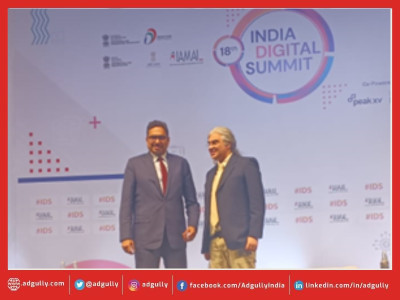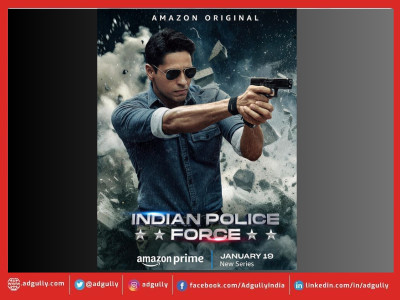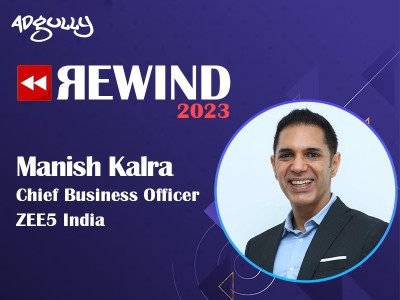Why differentiation is the way forward for OTT players - Part 1
Originals are becoming the staple for OTT players and each new release is being heavily promoted across media platforms, especially OOH and digital. The OTT space in India is on a growth curve, with cheaper data costs taking the medium beyond metros and larger cities to small towns and rural markets. New players are joining the market, with some major international players waiting in the wings – Disney+, Apple TV and Discovery’s OTT foray slated for the first half of 2020.
The OTT content library, too, is growing at a fast pace and these are busy times for content creators as well. However, with the addition of new web-series on a frequent basis will soon lead to a situation where there will be a surfeit of shows.
Various factors will then be in play that would influence viewer preference for a particular OTT platform. It would do well for OTT players to heed to the market realities and create the necessary differentiation as well as stickiness for viewers in this pull-based market.
Adgully spoke to some leading OTT industry experts on creating differentiation in the OTT space, the challenges faced, is specialising in a particular genre the answer and much more.
Ways in which OTT players can create differentiation
According to Greg Armshaw, Head of Media, Asia, Brightcove, people are passionate about and have strong opinions on TV and movie content. He feels that to encourage a wide ranging conversation about the content and the platforms, media companies should provide opportunities for fans to contribute and extend the conversation. This could be with Live ‘Ask Me Anything’ interviews, journalist or influencer delivered video reviews, advertorials on other media platforms and behind the scenes at production content. This could help with the creation of a free layer for SVOD platforms, build partnership with other media platforms and distribution to social media.
Deepak Segal, Head of Content, Applause Entertainment, opined, “The entertainment space is at a very elastic stage. Today, the players in the market are experimenting and creating content which is inventive and unique from the rest. They’re playing with content across genres that appeal to a certain palette of audiences. While there is already an OTT war at its peak, but in the end it is the content they create that makes the differentiation. At Applause, our focus is on premium drama and the writing, plays a very integral part of the whole creative process, together with the actors and directors who bring any series to life.”
For Deepak Dhar, Co-founder and CEO of Banijay, Asia, Hindi and regional language content would act as a differentiator in the already crowded space.
Vishnu Mohta, Executive Director - SVF; Co-Founder – Hoichoi, too, was of the opinion that the key differentiation would always be the content. The access to Originals and movies on an exclusive basis is what the customer cares about more. “This apart, there some other differentiating factors, such as localisation, which makes the entire experience more personal for the viewer. Another differentiation that we have done is bringing music streaming as part of the theme service through our Video + Music service. Thus, a person doesn’t need to have different subscriptions for audio or video,” he added.
Agreeing with the others, Ali Hussein, Ali has a account Chief Operating Officer, Eros Digital, also stressed on making content the primary part of OTT players’ marketing strategy. Citing Eros Now’s example, Hussein said, “Eros is a combination of films, high budget Originals, and short-form content and interesting short films. We need to have a different mix of content programmes for the audience. In terms of larger user experience for maximum satisfaction, there is need to create a unique customer journey on the platform and use technology to one’s advantage in terms of discovery, buffering in the video, etc.”
Specialising in select genres and dominating that space
Brightcove’s Armshaw noted that, “At global and regional levels, we are already seeing specific platforms catering to audiences with specific genres or niche content. If you size your tech platform and other costs appropriately, we actually think it is easier to build a profitable business without seeking to compete with the global or regional aggregators.” At the same time, he felt that dominating any given category of content was extremely difficult. The best strategy would be to focus on growing a returning audience at a scale that made sense for one’s business.
On the other hand, Segal of Applause Entertainment said that today, OTT players were focussing more on offering a wide variety of content to the audiences as per their likes and preferences. On the same streaming platform one could consume a crime thriller, a political drama or a light-hearted family comedy. Rather than specialising in select genres, the aim was to cater to the masses with their rich and unique programming.
Banijay Asia’s Dhar felt that it was more important for OTT players to recognise what their viewers wanted to watch. Therefore, it was pertinent to have a diverse portfolio. “To create the right balance of various stories and genres is a creative challenge for the OTT platforms. It is very important to explore new genres and stories in order to keep the audiences hooked on watching the web series,” he added.
For Hoichoi’s Mohta, more than the genre, it was all about having a clearly identified marketing segment that the OTT player is going after and focusing on the needs of the customers which would add value. “What is more interesting to see is how much depth we have in our customer segment, because everybody is trying to address the customer’s needs and it is very difficult to be all things to all the people. That is why one needs to clearly identify the market that they are going after and what are the needs of the customer base and focus on that. Specialisation is already beginning in some segments – I wouldn’t call it genre, but customer segments that we are focusing on,” he added.
Eros Digital’s Hussein was of the opinion that at the end of the day, every story is unique in its own way. If crime and drama shows are becoming popular with the audience, then create content in those genre that stand out. “It depends on what is the brand that you are looking at for the specific programme,” he said.
Tomorrow: Challenges, hybrid business model and more...






















Share
Facebook
YouTube
Tweet
Twitter
LinkedIn